The Sound of Summer: How Cricket and Radio Shaped My Childhood
Cricket has always been more than just a game to me. It is a tapestry of memories, woven together by the crackling voices of radio commentators, the smell of freshly cut grass, and the comforting presence of my father. My journey into the world of cricket began at the tender age of eight or nine, when I first sat beside my dad, an avid cricket fan, and listened to the magical descriptions of matches on the radio. Those early days of discovery laid the foundation for a lifelong love of the sport.
The Ritual of Listening
In our living room, the radio was the centerpiece of summer afternoons. The radio was placed in one corner of our largish hall, with a few Easy Chairs placed close to it. We had a four valve Telefunken with large speakers connected to provide better sound and clarity. Its ariel (antenna) stretched to catch the clearest signal. The moment the familiar voices of commentators like John Arlott, Brian Johnston, or Jim Maxwell filled the room, I knew I was in for an adventure. My dad would settle into his favorite armchair, and I would sit cross-legged on the floor, eager to absorb every word.
The commentators’ voices were my gateway to the game. They painted vivid pictures of sun-drenched grounds, the rhythmic thud of leather on willow, and the roar of the crowd. Through their descriptions, I learned about the artistry of a perfectly timed cover drive, the tension of a bowler’s run-up, and the drama of a close LBW decision. My dad would often reduce the volume of the radio to explain the nuances of the game, patiently answering my endless questions about field placements, batting techniques, and the intricacies of the LBW decision making.
Lessons Beyond the Game
Listening to cricket on the radio with my dad was about more than just learning the rules of the game. It was a bonding experience, a shared passion that brought us closer. My dad’s eyes would light up as he recounted tales of legendary players like Don Bradman, Niel Harvey, and Keith Miller of Australia and Len Hutton, Deenis Compton or Cyril Washbrook of England. He would mimic their styles, showing me how Bradman’s footwork was poetry in motion or how Benaud’s deliveries spun like magic. Those moments were my first lessons in storytelling, as my dad brought the history of cricket to life with his words.
The radio commentaries also taught me patience and imagination. Unlike television, which served up every detail on a screen, radio required me to visualize the action. I would close my eyes and picture the bowler charging in, the batsman’s elegant stance, and the ball soaring over the boundary. This exercise in imagination made the game feel personal, as if I were crafting my own version of the match in my mind.
When I return from school, I would play with the cricket bat that my brother gave me and hit the leather ball that was inside a sock and tied to the garage ceiling beam. I played out the previous days match pretending to be the batsman who had scored the runs the previous day!
The Thrill of the Ashes
Some of my fondest memories are of listening to the Ashes series, the pinnacle of cricketing rivalry between England and Australia. The tension in the commentators' voices mirrored the intensity on the field, and my dad's reactions heightened the drama. He would leap out of his chair at a wicket, groan at a dropped catch, and cheer at a boundary. I learned to share in his emotions, experiencing the highs and lows of the game as if I were right there in the stands.
From time to time, my older sisters would join us, casually inquiring about the game's status. I was a devoted England fan, while my sisters mischievously supported Australia just to get under my skin! Dad never revealed his allegiance, but I always knew he secretly sided with Australia—his reactions gave him away. Yet, he was always careful not to hurt my feelings.
I was an ardent admirer of Peter May and later, Ted Dexter. Among the bowlers, Freddie Trueman was my favorite. On the Australian side, my “enimies “ were Richie Benaud, Norm O’Neill, and Neil Harvey.
My cousins, Anil and Chandana, were just as passionate about cricket and staunch supporters of the Australian team. Whenever we met, our discussions would quickly turn into heated debates, each of us arguing our points like seasoned experts. When neither side was willing to concede, we would seek arbitration from our fathers, who were often on hand to mediate!
Thankfully, I had an ally—Nirmala, the youngest of the three brothers— was fortunately an England supporter. Whenever our debates reached a stalemate, he would step in to support my case, much to the chagrin of his elder brother Chandana!
One particular memory stands out: the 1959 Ashes series, often hailed as one of the greatest in cricket history. My dad and I were glued to the radio as England and Australia battled it out in a series full of twists and turns. The commentators’ excitement was palpable, and my dad’s animated commentary made it even more thrilling. England finally reclaimed the Ashes, the joy in our living room was electric. It was a moment I’ll never forget, a testament to the power of cricket to bring people together.
Cousins Chandana and Anil were crest fallen, but my sisters were so happy that I realized their support for Australia was just a show!
A Lasting Legacy
Those childhood days of listening to cricket on the radio with my dad have left an indelible mark on me. They instilled in me a deep appreciation for the game, its history, and its ability to unite people across generations and cultures. More importantly, they gave me a treasure trove of memories with my dad, moments of connection that I will always cherish.
Today, as I watch cricket on television or stream it online, I miss the simplicity of those radio days. There was something magical about letting the commentators’ voices guide my imagination and sharing the experience with my dad. Cricket, for me, will always be intertwined with the sound of the radio and the warmth of my father’s presence.
Cricket is a sport that thrives on storytelling. Its leisurely pace, intricate strategies, and moments of high drama make it uniquely suited to radio commentary. Over the decades, a handful of legendary voices have brought the game to life for millions of listeners, painting vivid pictures of the action and capturing the essence of cricket’s charm. From England to Australia, these commentators have become as iconic as the plays and the players they described.
My cousins Chandana and Anil loved Alan McGilvary a brilliant Australian commentator and story teller. Although he had an Australian accent, it was a clear and refined version. His commentaries were authoritative and measured. Whilst I did like his commentary, (Lindsey Hassett and Jim Maxwell were too biased for me) I naturally preferred the English commentators.
The English Legends
- John Arlott (1914–1991)
John Arlott was the poet laureate of cricket commentary. With his rich, Hampshire burr and a gift for lyrical phrasing, Arlott turned cricket into an art form. His deep knowledge of the game, combined with his love for its traditions, made him a beloved figure. Arlott’s commentary during the 1948 Ashes series, particularly his descriptions of Don Bradman’s final innings, remains legendary. He was also a staunch opponent of apartheid, using his platform to advocate for justice. - Brian Johnston (1912–1994)
Affectionately known as "Johnners," Brian Johnston was the voice of cricket for generations of BBC listeners. His infectious enthusiasm, wit, and ability to find humor in even the most mundane moments made him a household name. Johnston’s partnership with commentator Trevor Bailey on Test Match Special (TMS) was iconic, and his famous line, "Aggers, stop the bus, I need a pee," still brings a smile to fans’ faces. - Henry Blofeld (1939–)
With his distinctive upper-class accent and penchant for eccentric observations, Henry Blofeld became a TMS institution. His commentary was filled with references to "my dear old thing," pigeons on the pitch, and double-decker buses passing by the ground. Blofeld’s charm and wit made him a favorite among listeners, and his ability to weave anecdotes into his commentary added a unique flavor to the broadcast. - Christopher Martin-Jenkins (1945–2013)
Known as "CMJ," Christopher Martin-Jenkins was the consummate professional. His precise, articulate commentary and deep understanding of the game earned him widespread respect. CMJ’s voice became a fixture on TMS, and his ability to convey the drama of cricket with clarity and authority made him one of the greats.
The Australian Icons
- Alan McGilvray (1909–1996)
Alan McGilvray was the voice of Australian cricket for over 50 years. His calm, measured tone and encyclopedic knowledge of the game made him a trusted figure for listeners. McGilvray’s commentary during the famous 1960-61 Tied Test between Australia and the West Indies is still remembered as some of the finest in cricket history. He was also known for his sharp wit and ability to capture the tension of close matches. - Richie Benaud (1930–2015)
While Richie Benaud is perhaps best known for his television commentary, his radio work was equally masterful. A former Australian captain, Benaud brought a player’s insight to the microphone. His concise, understated style and dry humor made him a favorite among fans. Benaud’s famous line, "Marvellous effort, that," became part of cricket’s lexicon. - Jim Maxwell (1950–)
Jim Maxwell has been a mainstay of Australian cricket commentary for over four decades. His deep, resonant voice and authoritative delivery have made him a trusted figure for ABC Radio listeners. Maxwell’s ability to capture the drama of Ashes contests and his passion for the game have cemented his place among the greats. - Kerry O’Keeffe (1949–)
Known for his humor and irreverence, Kerry O’Keeffe brought a unique energy to cricket commentary. His playful banter and ability to find the lighter side of the game made him a fan favorite. O’Keeffe’s partnership with Jim Maxwell on ABC Radio was particularly memorable, blending insight with entertainment.
The Legacy of Cricket Commentary
The great cricket commentators of the past were more than just voices on the radio; they were storytellers, historians, and entertainers. They brought the game to life for those who couldn’t be at the ground, creating a shared experience for fans around the world. Their ability to capture the drama, beauty, and humor of cricket ensured that the sport remained vibrant and engaging, even in the absence of visual imagery.
Today, their legacy lives on in the modern generation of commentators who continue to uphold the traditions of cricket broadcasting. Yet, the voices of Arlott, Johnston, McGilvray, Benaud, and others remain etched in the memories of cricket lovers, a testament to their enduring impact on the game.
- Jivaka Atapattu
-
Still No Comments Posted.




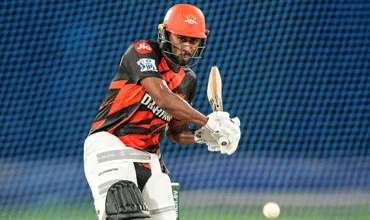
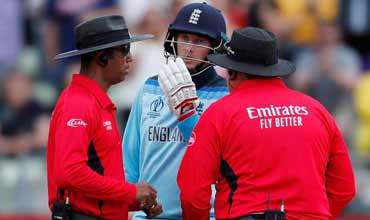
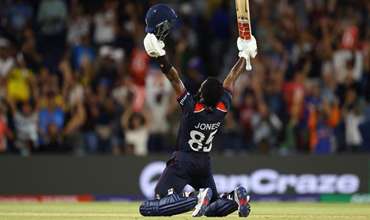

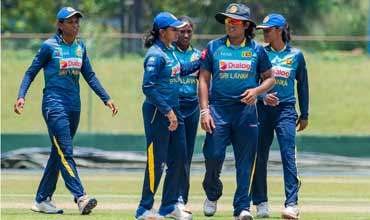


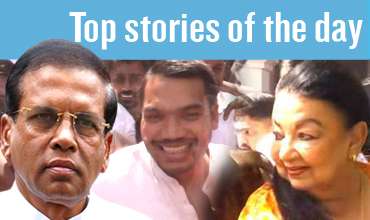


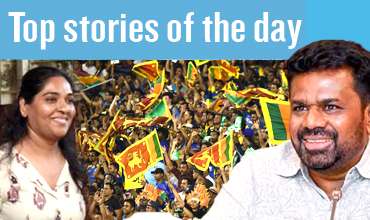


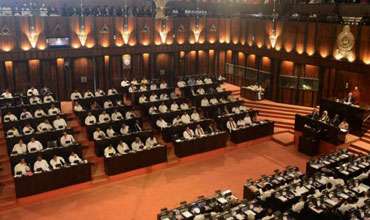
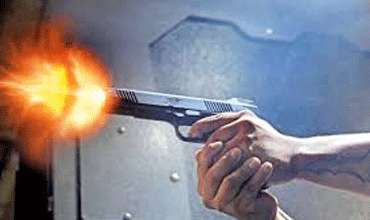
Leave Comments